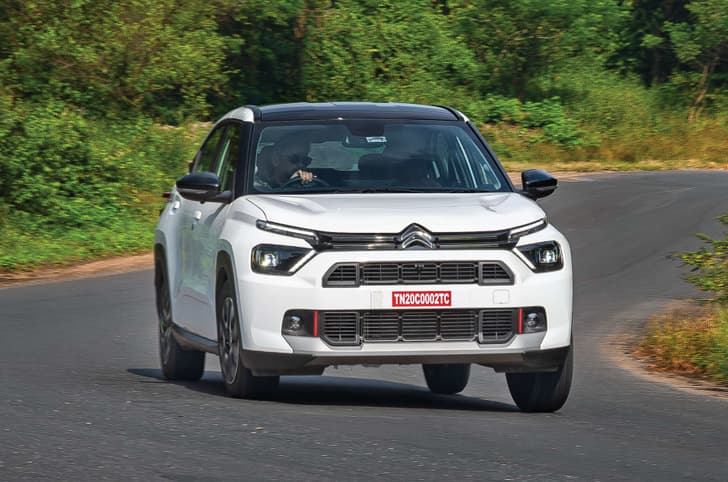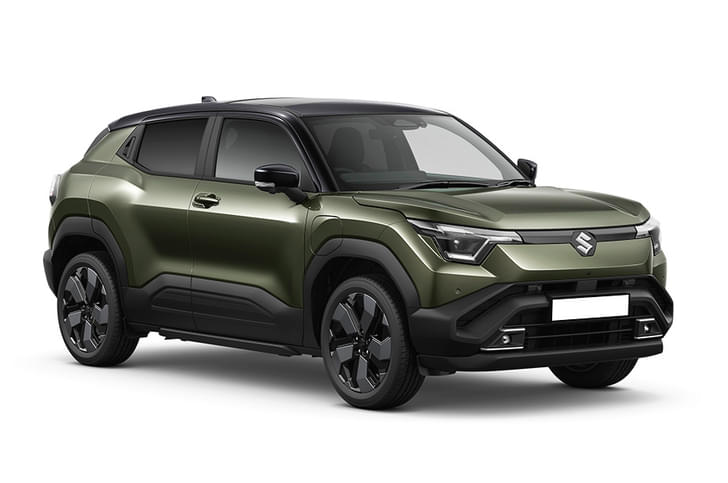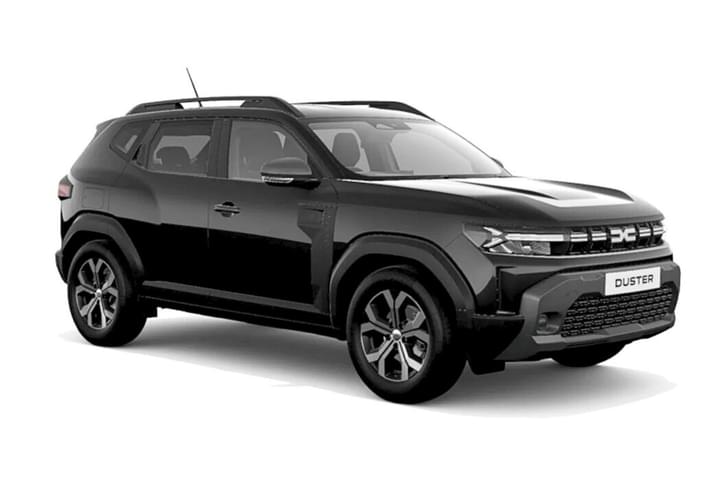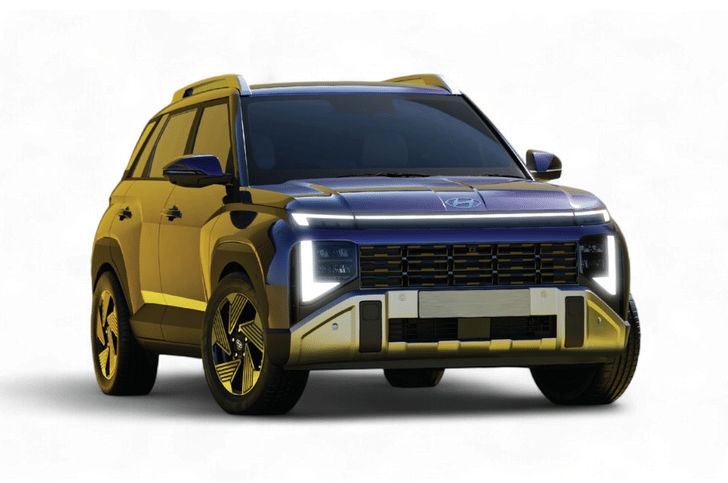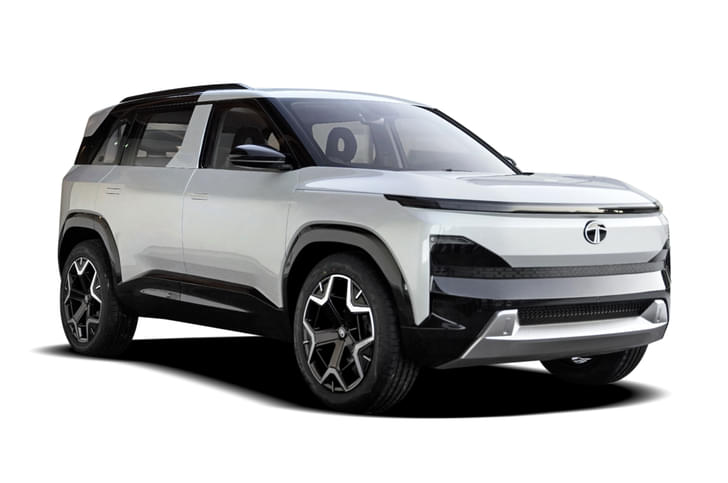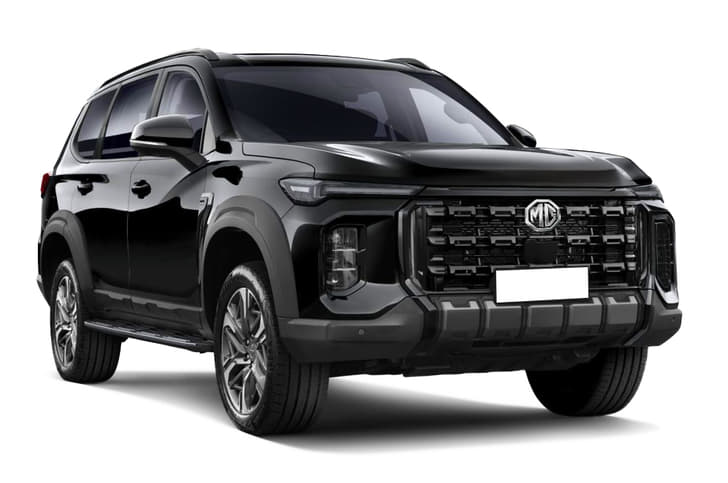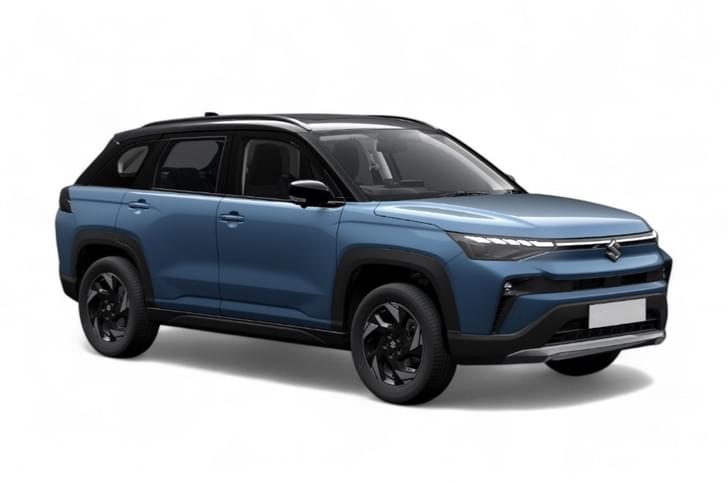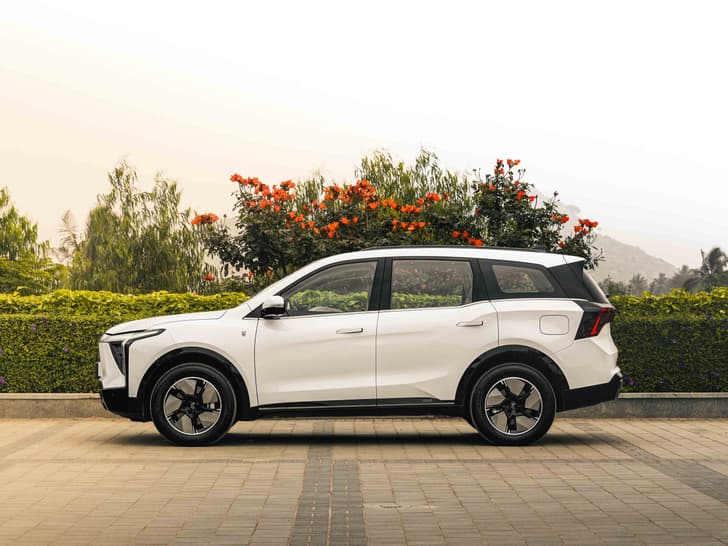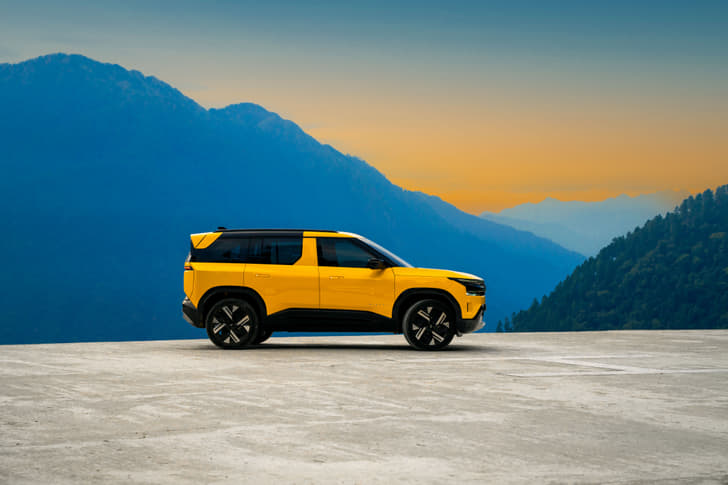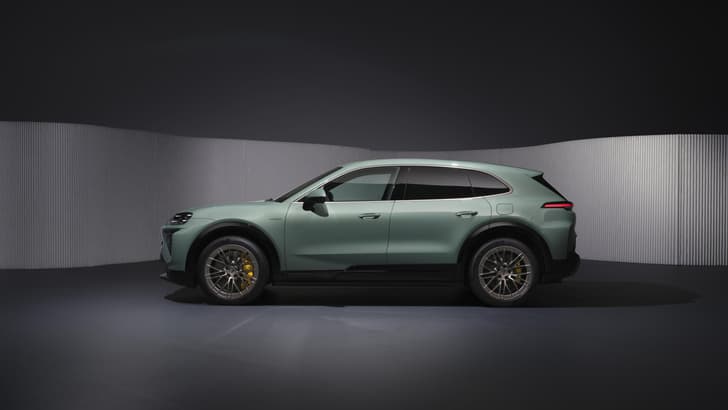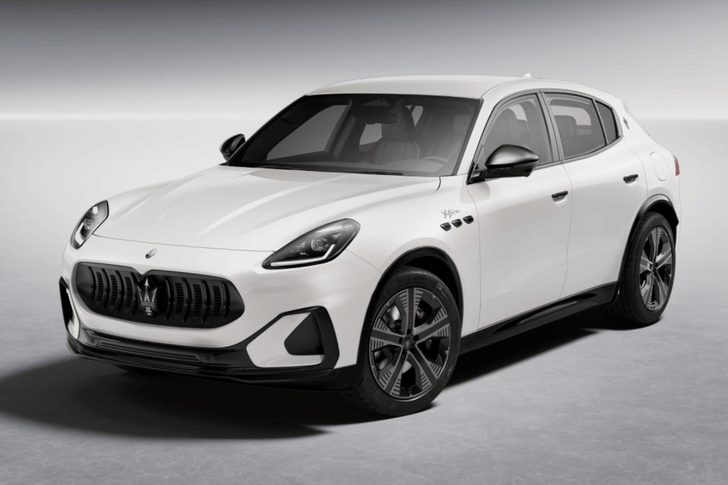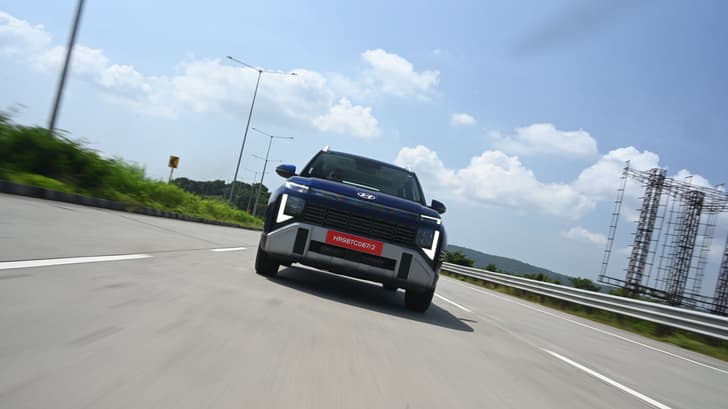BMW’s X1 is the largest-selling luxury SUV in India. This wasn’t always the case. The first-generation X1 was based on a rear-wheel-drive platform and was fun to drive, but it wasn’t spacious, practical or very SUV-like to look at. So it wasn’t very successful in India. For the second generation, BMW swapped to a Mini-based front-wheel-drive platform. This proved to be a clever move as the use of a transverse engine made the SUV more space efficient. A higher-quality cabin and more of an SUV stance paid big dividends too, and this second-generation X1 sold really well in India.
BMW X1 exterior design, dimensions
The third-gen X1, however, is a luxury SUV that’s difficult to identify correctly. Yes, it’s clearly a BMW… there’s no confusing the big BMW kidney grille. But which BMW SUV is it? Look at it from the side, and it has X3 written all over it. It has a tall and flat bonnet, a long wheelbase and an upright glass house. At 4.5 metres long, 1.6 metres high, and sitting on chromed-over 18-inch wheels, it also has plenty of road presence. The new X1, in fact, is almost the size of the first-gen X5. BMW’s baby sure has grown up.
.jpg?w=700&c=0)
Up front, the new X1’s nose is dominated by the big, chrome kidney grille. Only slightly oversized here, something you are likely to soon get accustomed to, it is flanked on either side by adaptive LED lights that get twin headlight-like lighting elements. The adaptive LED lights are a segment first and offer automatic range control, among other adaptive features. Lower down, the square chin looks purposeful, but BMW has made provision for air curtains that curve the airflow around the front tyres. It must be said, for its block-like shape, the new X1’s coefficient of drag of 0.26 is pretty good.
As you move towards the rear, you see a hint of a Hofmeister kink after the ‘C’ pillar; what stands out is that the rear is really sculpted and attractive looking. There’s a large spoiler on top that extends far out, the tail-lights have 3D elements that stick out and towards the bottom is a thick panel that helps the rear look more substantial. And has BMW finally gotten rid of the shark fin antenna, something it pioneered?
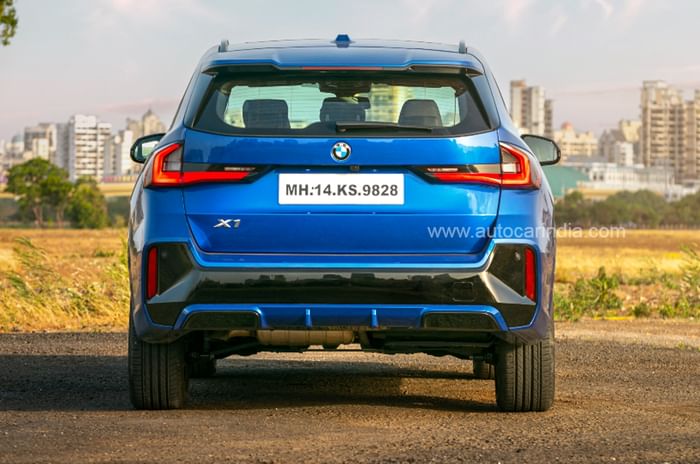
Under the skin, the X1 uses the latest development of BMW’s front-wheel-drive FAAR architecture. The new platform is wider, more space efficient and can also accommodate all sorts of new connected tech and driver assistance systems, and can even be fitted with a full-sized EV battery.
BMW X1 interior, features
Where the new BMW X1 really aces it is on the inside. First impressions are clearly of a more mature, larger and better-equipped SUV, one that seems to be from a class above. And far from being entry level, it stands up really well to close examination.
In fact, the new X1 is such a step up from cars like the BMW 2 Series, the difference is huge. Adding a degree of freshness is the unconventional layout of the dash. The designers have provided an array of vents that stretch the width of the cabin, the conductive charging pad for your phone is placed vertically and BMW has integrated both its curved display screen and its ‘floating’ armrest into the X1 too.
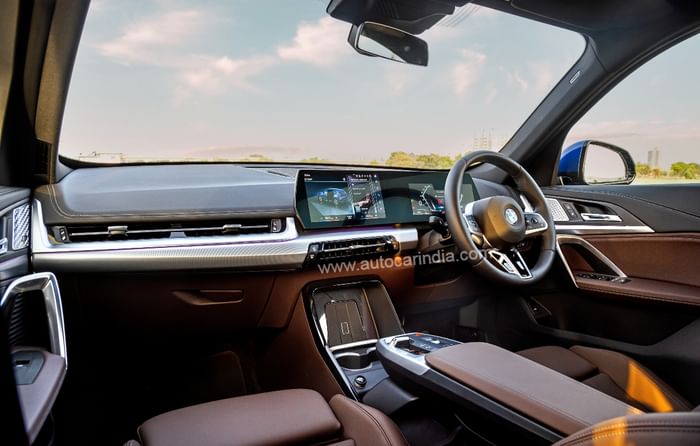
What ups the luxury quotient is that the dash is full of interesting high-quality bits – stuff like the double-stitched leather on the dash, strips of brushed aluminium and chrome, and a textured metallic band that runs right across. Mood lighting looks cool, and don’t the metallic inserts on the padded door pads look great? There are a few ordinary plastic bits too, and the area around the glovebox isn’t as nicely built, the plastic mesh for the speaker on top of the dash is surprisingly low rent, and this is true of the speaker shrouds lower down on the doors.
BMW’s driver-centric curved display isn’t as large as other, more expensive BMWs, but it still looks great and the quality of the screen and the slick manner in which it functions makes using it a delight. Also particularly nice is the interface with its large fonts and customisable boxes and windows. As expected, you get connected tech, and what’s interesting is that the X1 allows you to use a digital key via your phone and share it with four people. In addition, you get Apple apps integrated with the regular ones – pretty cool. Also, you can use the ‘Reversing Assistant’ that will reverse out of a tight lane or parking slot you’ve driven into without your assistance. It works really well.
.jpg?w=700&c=0)
However, what’s not so nice is that you often have to dive deep into a menu to do regular functions. Switching drive modes now has to be done via a button on the central console and the touchscreen; the same is true for the aircon and blower controls. And there’s some kit missing on the new X1, too. Cooled seats are something customers will want and there’s no HUD on this version. Other features, however, include a massage function for the front seats, a panoramic sunroof, an auto tailgate with a kick function, active sport seats, connected car tech, ADAS functions like active cruise control with braking evasion, and a 12-speaker Harman Kardon audio system.
BMW’s M Sport steering wheel is nice and chunky, and it still has some real buttons on it; no fiddly and difficult-to-use capacitive touch buttons. Also well executed is the floating centre armrest, which incorporates the start/stop and gear selector functions, and what impresses is that both build quality and functionality are slick. Especially the knurled metal roller used for the volume control, the matte plastic buttons are well finished and the stowage space below is useful too. The elbow box, however, opens the wrong way for right-hand-drive cars.
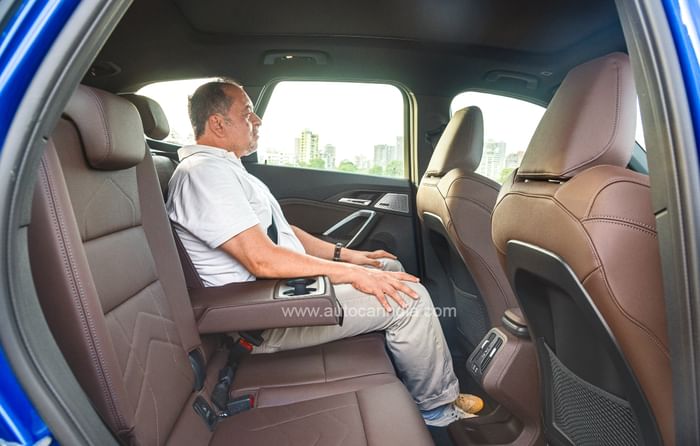
Rear seat comfort is also excellent, especially for an SUV in this class. There's plenty of legroom even with the front passengers sitting comfortably, and you can stretch out and stick your legs under the front seats easily. Additionally, support for your thighs and back is good and you even have plenty of headroom. You can even slide the rear bench back (by 130mm) and recline the backrest. And sitting three abreast will be a bit easier due to the extra cabin width.
Even the boot is large at 476 litres, and, once you flip the rear seats down, you get more than 1,500 litres of space. You can even split the rear seats 40:20:40. Under the floor is a space-saver spare tyre and the new X1 comes with an electrically operated tailgate with a ‘kick’ to open function.
BMW X1 engine, performance
As I settle down behind the wheel, I’m immediately impressed with the driving position. The front seats are probably a half-size larger than you expect on a car in this class – the excellent Volvo XC40’s front seats apart – and they offer both great cushioning and lateral support.
On the move, the X1 proves to be silent and smooth in general and delivers the impression of being a much larger and more refined SUV. You can, however, hear a hint of tyre noise over coarse surfaces. Ride quality also isn't pillowy soft on its 18-inch wheels, and this is because the X1 has some stiffness in its suspension that can clearly be felt as a pitter-patter at low speeds. Comfort levels improve a lot as you go faster, and what’s nice is that the ride is flat, with no up and down movements discernable. That said, SUVs like the Audi Q3 are more comfortable when it comes to ride quality.
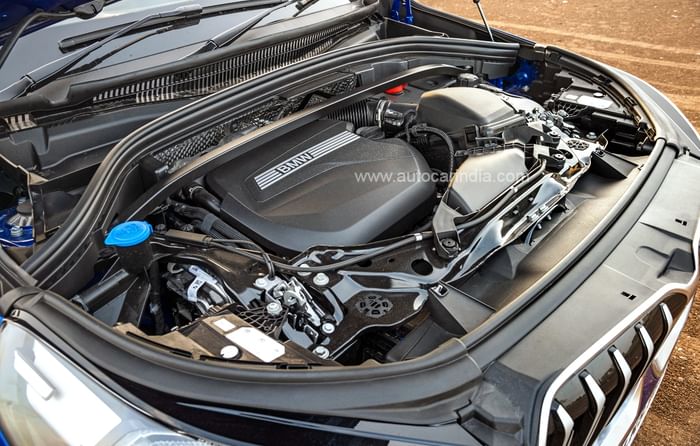
The new X1 sDrive 18d M Sport is also down on power. While the earlier X1 diesel got 190hp, this one gets just 150hp. Refinement and smoothness, however, come as a pleasant surprise. This diesel is near silent and creamy smooth at low speed, and then what makes it really nice to drive at low and medium speeds is that it is very responsive due to its smaller turbo. It’s ideally suited to be driven at low and medium speeds, and what helps is that the twin-clutch gearbox works well with the torquey bottom end, with very few pauses and delays in clutch engagement and disengagement discernable.
Use more revs on the diesel and the engine gets a bit more gravelly as you rev past 2,500rpm, but even here the increase in performance as you push the pedal is very linear. And it’s this smooth torque that keeps the X1 skipping effortlessly and cheerfully forward. Power delivery isn’t spiky and it doesn’t come in a rush, but what you get is a nice, long linear pull, and that sort of suits the character of the new X1 to a T.
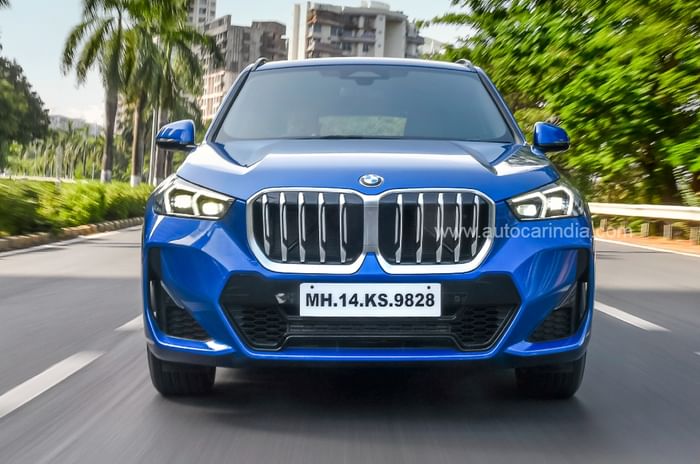
But get the X1 up to higher engine speeds, say above 3,500rpm, and you do feel you need more performance and a bit more grunt. When timed with our V-Box, the X1 did 0-100kph in a respectable 8.9 seconds. Still, the Mercedes GLA 220d 4Matic is much quicker, clearly more potent and more entertaining, and it reaches 100kph in just 7.4 seconds. Pull the left paddle on the steering wheel and you get a 10-second ‘boost.’ But this ‘boost’ mode won't give you more power or response if you've already optimised the gearbox and engine settings, so it's more a convenience rather than more power.
The new X1’s driving manners, however, are first-rate. Now yes, this is a front-wheel-drive SUV, and it has its centre of mass that’s high up, but it's also a BMW and that means there's plenty of driving pleasure to be had. What helps it stand out is that it has a really nice balance and feels connected to the road. And drive it in an enthusiastic manner and it does step up and deliver the goods. The steering doesn’t have much feel and it clearly isn’t as good as the one on the 2 Series, still, it is direct and accurate and that helps the X1 feel pretty agile and fun in the twisties. Even the brakes are well-metered and deliver a good amount of feel and a lot of confidence as you get into a corner.
BMW X1 price, verdict

The new BMW X1 is larger, and crucially, looks larger and more SUV-like than its predecessor. That’s also translated to more cabin space, and with that has come a more radical design and a big step-up in quality and luxury appointments. At Rs 47.9 lakh (ex-showroom) for this M Sport diesel, it’s priced competitively too, but it’s not without its flaws. Chief of these is the downgrade to 150hp for the diesel engine (and 136hp for the petrol), and the absence of an AWD option, which are the areas where it lags behind rivals the most. Can it hold on to its top spot? It may not be the performance pick it once was, but it certainly has a wider appeal now.






